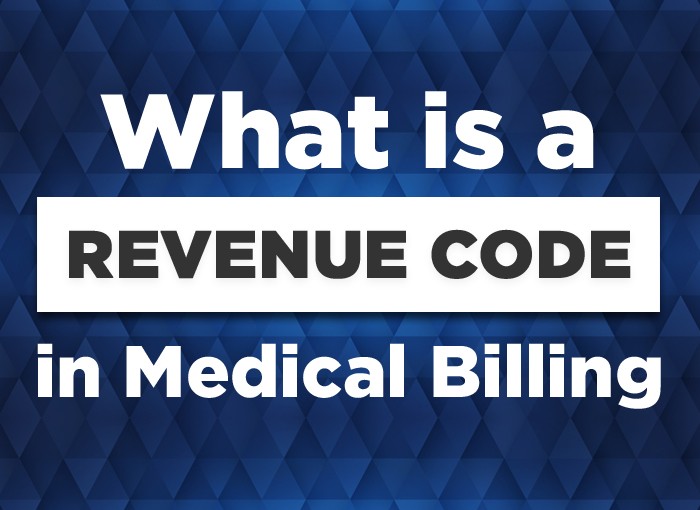What is the Revenue Code in Medical Billing
Coping with medical billing intricacies becomes challenging mostly because of all the various billing codes and regulatory factors. All medical billing operations depend heavily on revenue code systems. Medical providers use revenue codes to determine healthcare reimbursement rates by insurance companies. This article explains the meaning and importance of revenue codes together with their effects on medical billing operations.
Revenue Codes in Detail
The medical billing process uses three- or four-digit numeric codes termed revenue codes to segment diverse hospital services as well as patient services. A revenue code establishes the particular medical service type which can be room and board laboratory tests or medical supplies. Healthcare organizations depend on revenue codes to secure proper insurance reimbursement along with federal reimbursement from Medicare and Medicaid programs. Standardized labels known as revenue codes help medical staff maintain mutual understanding about the services patients receive.
What Role Revenue Codes Play in Medical Billing?
Revenue codes do not represent a random collection of digits. Numerous essential tasks help medical billing operate as a system because of these codes. Accurate billing represents the key function that these codes enable throughout the process. The correct payment for healthcare provider work stems from revenue codes that stipulate the exact services delivered to patients. If revenue codes were absent then health insurance claims would become unreadable leading to delayed reimbursements or complete denial of payment.
Through revenue codes, institutions gain the ability to analyze medical data. Hospitals together with other healthcare facilities utilize this system to monitor service utilization patterns. The analyzed data enables organizations to enhance their efficiency while using their resources effectively and detect areas of high operational costs. The analysis of particular laboratory tests enables hospitals to secure better supply prices for their medical facilities.
Healthcare institutions must utilize revenue codes to establish compliance standards. Healthcare providers must stick to insurance company regulations and government payer standards through the use of revenue codes. Healthcare providers need to use appropriate revenue codes because improper usage leads to both audits and financial penalties. Healthcare providers must use the correct revenue codes when working with Medicare and Medicaid since these programs represent government-funded health insurance.
How Revenue Codes Work
The healthcare system integrates revenue codes for their use alongside Current Procedural Terminology (CPT) codes and Healthcare Common Procedure Coding System (HCPCS) codes. CPT codes list precise medical treatments but HCPCS codes include both necessary equipment and supplies and services CPT does not contain. The type of service receives categorization through revenue codes while additional coding elements receive context from this broader categorization.
When a patient receives a particular surgical intervention the medical provider assigns the corresponding CPT code for billing purposes. Each revenue code identifies where the service took place between inpatient or outpatient settings or alternative locations. These coded systems together explain all healthcare services delivered to patients.
Revenue Codes and the Claim Submission Process
Healthcare providers need to utilize correct revenue codes within their claim submissions to both insurance companies and government payers when they submit their services for payment. Medical insurance organizations apply these codes to calculate the correct payment levels for healthcare providers. Proper coding practice ensures both correct claim processing and timely payment of services to providers.
The Impact of Incorrect Revenue Codes
The use of inappropriate revenue codes results in adverse effects. Claim denial situations result in both delayed payment and higher administrative expenses. Medical facilities that submit claims with faulty coding may face potential penalties because incorrect coding counts have a potential for fraud. Healthcare providers need complete knowledge about revenue codes in combination with trained billing personnel for proper claim management.
Staying Updated on Revenue Code Changes
Medical organizations need to maintain continuous awareness about changes that occur in revenue code systems.
Healthcare providers must use updated revenue codes because these codes undergo frequent modifications. Healthcare providers must constantly stay updated with the regular updates CMS makes to the code set because it remains their duty to be informed about these changes. However, neglecting current codes leads to claim rejections plus delayed payments.
Revenue Codes and Healthcare Compliance
Healthcare institutions need exact revenue code implementation for compliance purposes. Insurance companies together with government payers maintain detailed guidelines about how their members should perform coding and billing operations. The necessary guidelines for healthcare providers must be followed to prevent audits alongside their related penalties. Routine billing practice reviews combined with routine internal audits serve to maintain compliance in healthcare operations.
The Role of Technology in Revenue Code Management
As a part of their design medical billing software systems offer functionality that supports healthcare providers in efficient revenue code administration. Automated coding systems help healthcare providers avoid mistakes in coding by submitting proper payment claims. The implementation of advanced billing software brings both higher efficiency and revenue cycle accuracy to medical billing processes.
Revenue Codes and Patient Understanding
Patients do not actively work with revenue codes but increasing their comprehension of these codes improves their ability to understand their healthcare expenses. Guided information about classification through revenue codes allows patients to comprehend how they receive their medical bills for particular procedures or supplies. Understanding the billing process helps patients recognize when possible billing mistakes occur.
Conclusion: The Critical Role of Revenue Codes
Medical billing depends heavily on revenue codes for its fundamental operation. These medical codes enable standardized service classification which supports correct billings and enables data analysis while ensuring compliance measures are met. Healthcare providers must understand all revenue codes to both improve their revenue process and get proper reimbursement for their actual work. Healthcare providers who maintain code updates and acquire suitable technology tools manage revenue codes successfully throughout medical billing systems. Quality patient care remains the top priority because the organization can direct its attention toward delivering treatment excellence.



